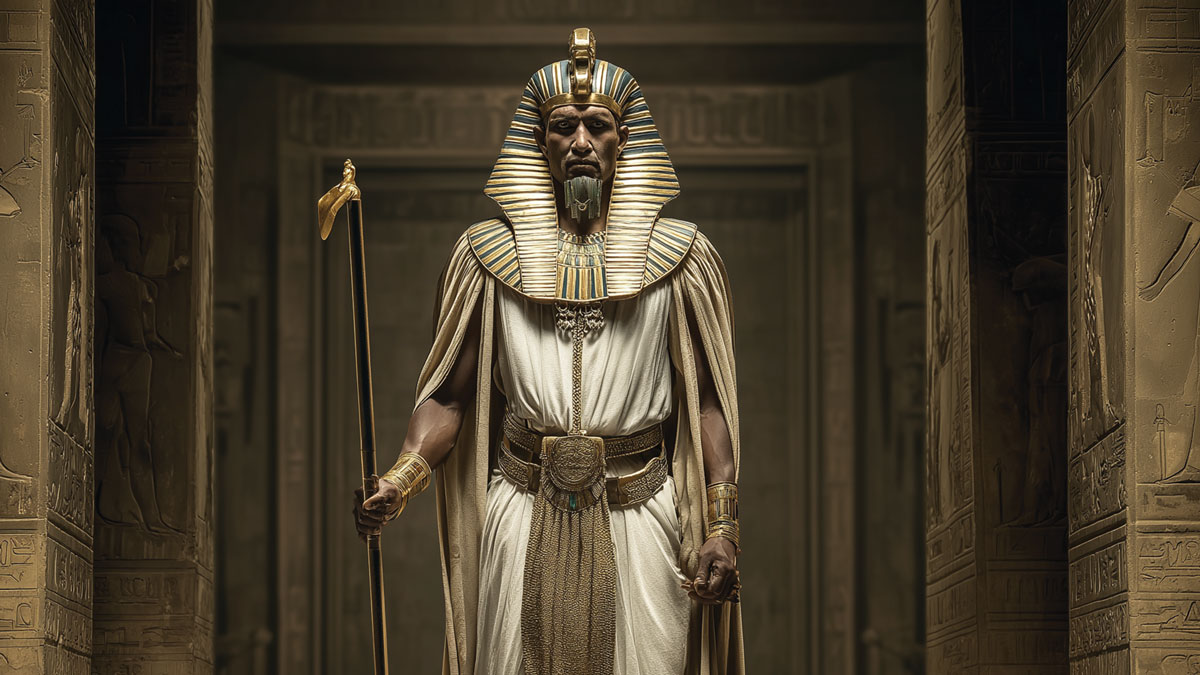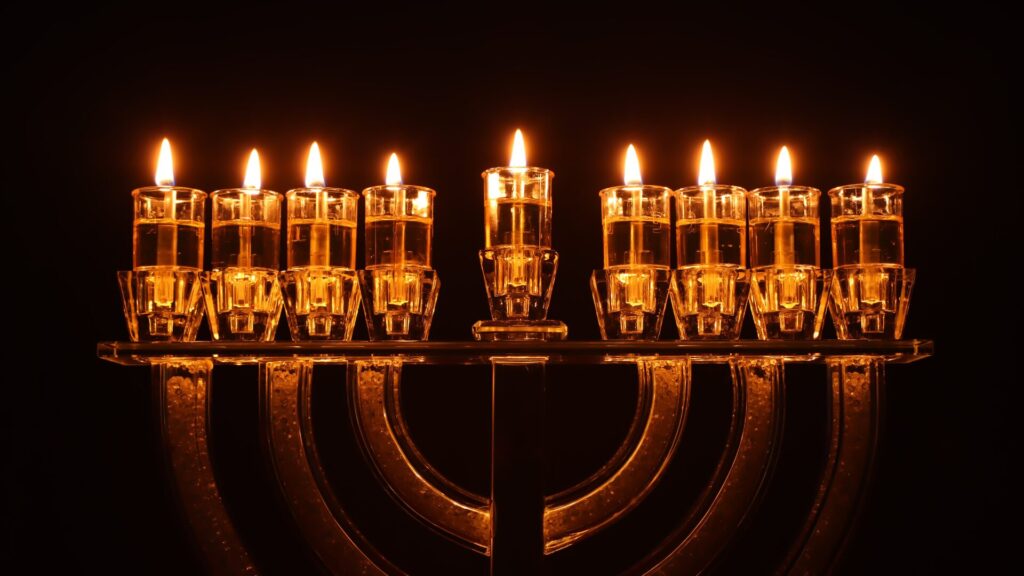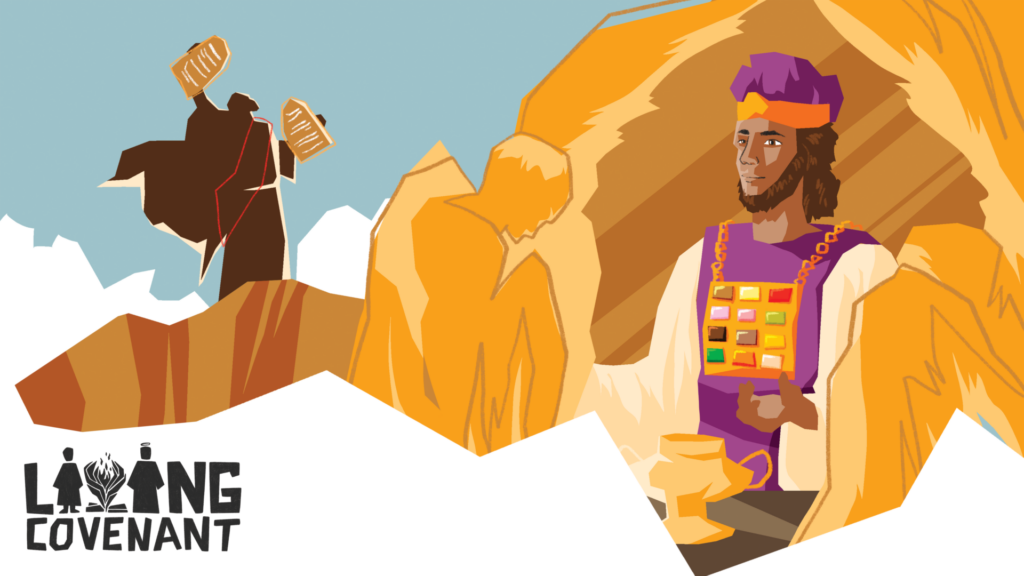Did God need the permission, consent or cooperation of Pharaoh in order to free His people from Egyptian servitude?
The obvious answer to that is NO!
Having their origins in Himself, both the authority and power needed to deliver Israel (in whatever manner) were His—original, unborrowed and underived. From that perspective, God’s need for Pharaoh was less than zero.
Yet obviously God chose to seek, and invite, Pharaoh’s participation in a pretty significant way: “let My people go”.
But why would God do that?
This question is more relevant, even perplexing, if one believes that God already knew Pharaoh would not cooperate; or even more so (as believed by some) that He (God Himself) was going to harden Pharaoh’s heart!
Why then try to involve him? Perhaps, to put it another way—does God engage in exercises of futility?
Further, what sort of God would do that at the expense of great loss and tragedy to the innocent people of the entire nation?
Not one of us would be crass or bold enough to lay this on God would we? We would all desire a different option or outcome.
So, are we against the proverbial “brick wall“ or do we look beyond the “what” to the “why” and find a more plausible and honourable view of God in all of this?
Ever since the fall (of Edenic days), God has been actively attempting to see His own image restored (even at great cost to Himself) in the mind of corporate, degenerate humanity. And Egypt was a classic portrayal of just that condition: a polytheistic, pagan, idol worshipping people whose own national leader was accorded the quality of godship (deity).
It is no surprise at all that Pharaoh should ask, “Who is the Lord that I should obey him?” (Exodus 5:2). He was a man who did not know God, and just maybe God chose this opportunity to give Pharaoh and the people of Egypt the opportunity to find out who He really was (Exodus 7:5). A much later demonstration of this gracious, salvific aspect of God is displayed in His interactions with the Ninevites. God is infinitely more impassioned about deliverance and salvation than He is with punishment and destruction.
Taking this perspective, we find God desiring, and determined, to bring about the fulfilment of His promise to Abraham. God took the path of possible conversion and salvation, not just for Pharaoh, but the nation of Egypt. God did this by attempting to answer Pharaoh’s question, “Who is the Lord that I should obey Him?”
Interestingly, in accepting Pharaoh’s question as genuine (maybe even sincere), God’s approach was to challenge Pharaoh, not by argument or theology, but by visual and physical demonstrations of His supremacy over the multiple gods of Egypt. Verbal attack on, or cynicism directed at, those gods is absent. There is no personal finger pointing, put down or criticism of Pharaoh himself.
Pharaoh was a product of his own pagan culture and upbringing. It is historically believed he was Pharaoh twice removed from the one who knew Joseph. The good times and pleasantries of peaceful co-habitation with the dwellers of Goshen were gone and forgotten. Fear and suspicion now dominated any thought of the now-prosperous descendants of Jacob. Pharaoh knew the reality of his own demise (politically and as a god) should he give any credence to a God other than those revered by his fellow countrymen. Who would not be reluctant? Who would not be scared? Who would bend the knee in such a situation?
So God continued knocking at a rigid heart’s door.
With every refusal came a new opportunity (v16 “until now you have not listened”). Some of those opportunities taken reveal a very interesting, challenging, yet often used dynamic in God’s modus operandi.
Take a look at Exodus 7:8–10. “Aaron threw down his staff in front of Pharaoh and his officials, and it became a snake.” Interestingly, of the Egyptian magicians we also read (v12), “Each one threw down his staff and it became a snake.” Scripture does not say the magicians’ rods became look-a-like snakes or fakes. Scripture says they became “snakes”.
One might say “They could not be real snakes, because the devil, working through the magicians, could not create life.” So very true.
But what about God stepping in and turning those rods into real snakes? Now, thinking that his gods had done this, momentarily Pharaoh is ignorantly gloating—“So what? We can do it too!” But then the supremacy of God’s miracle becomes even more commanding and spectacular as Aaron’s rod-snake devours the others! Pharaoh is graphically confronted by this display. Yes, God often works in mysterious ways. Many of God’s prophets, and often His people, were indignant at the fact that God frequently worked in and through those who were not “His people” to bring about His purposes.
We can logically ask similar simple questions regarding some other plagues.
The waters of Egypt to blood (Exodus 7:14–24).
Not just the Nile, but also canals, ponds, reservoirs, wooden buckets and stone jars; “blood was everywhere in Egypt” (v21). Now note v22: “But the Egyptian magicians did the same things by their secret arts . . .” Have you ever wondered from where the magicians obtained the clear or clean water which they could then turn to blood? Could God have provided that supply of clear water? Of course He could, and there is no biblical comment or suggestion that would deny His doing that.
Then the frogs!
Earlier verses tell us that all living things in the waters of the Nile died. How then is it possible that in just seven days (v25) “the Nile will teem with frogs”? Now frogs may multiply rapidly, but natural biological generation is not an option here! Another miracle of the Life-giving God? Another powerful demonstration in the Lord versus pagan gods contest.
The next step is an interesting one—both from the involvement of God and the magicians. The gnats! (8:16–19) “When Aaron stretched out his hand with the staff and struck the dust of the ground . . . All the dust throughout the land of Egypt became gnats.” Interestingly God now leaves the magicians stranded! “They could not” (v18). And their sense of power and pride is cracking! In spite of the threat to their court privileges, and banishment to who-knows-where—even at the risk of death, they attempt a persuasive approach to Pharaoh: “The magicians said to Pharaoh ‘This is the finger of God’” (8:19).
Sadly Pharaoh rejected even the helpful counsel of his closest and strongest courtiers. Pharaoh was sealing the doorway of his own sarcophagus—sealed in lifeless, stony history.

Plaguing questions?
When God is at work, it is not ours to tell Him how or when He might act.
When God is at work, give Him credit for the lengths to which He will go.
When God is at work, expect Him to do things we may not understand or even agree with.
When God is at work, let’s just be thankful that He is.
When God is at work, let’s echo Habakkuk‘s resolve: “The Lord is in His holy temple; let all the earth be silent before Him” (Habakkuk 2:20).
Frank Dyson is a retired pastor living in Queensland.






